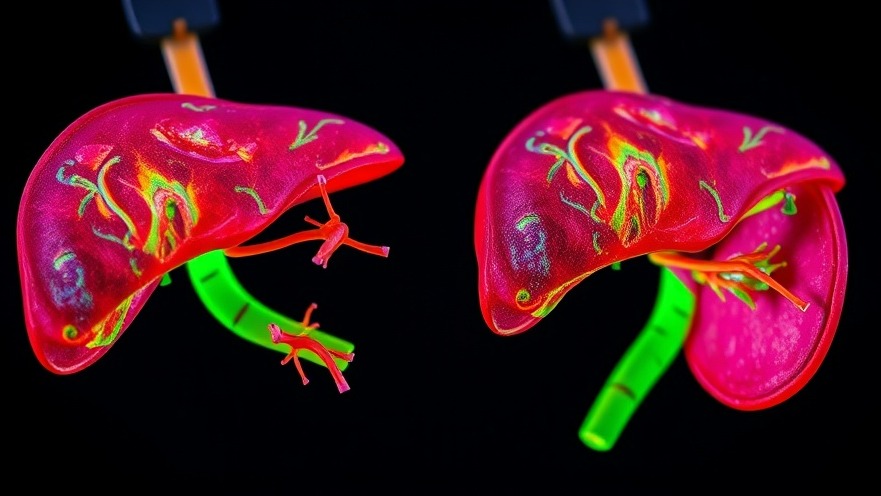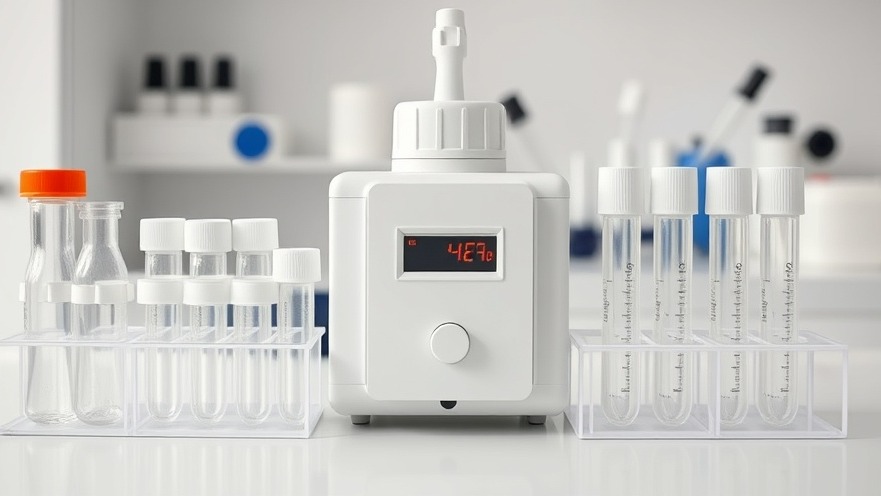
Miniature Liver Models: A Breakthrough in Medical Science
Imagine a world where the complexities of liver diseases could be tackled more effectively through advanced research models. Researchers at Keio University have reached a significant milestone in this direction, achieving unprecedented growth in miniature, functional liver models known as hepatocyte organoids. These small yet powerful representations of liver function have the potential to shift paradigms in drug development, metabolic disease treatment, and regenerative therapies.
The Significance of Liver Health
The liver plays a crucial role in human corporeal functions, from metabolizing nutrients to detoxifying harmful substances. With over one-third of the global population impacted by liver-related diseases like metabolic dysfunction-associated steatotic liver disease (MASLD), advances in liver research are paramount. This makes the recent developments in organoid research not only timely but necessary.
Revolutionizing Organoid Growth: What’s New?
Traditional cultivation methods for hepatocyte organoids have often resulted in limited growth and functionality, with hepatocytes failing to exhibit required liver characteristics beyond a short period. However, the innovative approach by the team at Keio University, which involved treating cells with oncostatin M—a signaling protein significant in inflammation—saw a million-fold increase in hepatocyte organoid proliferation within 3–4 weeks, maintaining functionality for up to six months. This rate of growth and the ability to sustain differentiated functions marks a pioneering moment in cellular biology.
The Impact on Drug Development and Patient Healthcare
For concierge health practitioners, the implications of such advancements are profound.
Accelerated Drug Testing: By using these organoids to test drug efficacy and safety, practitioners can expedite the clinical trial phases for medications aimed at liver diseases.
Personalized Medicine: Organoids derived from cryopreserved patient cells allow for creating more tailored treatment plans, potentially leading to better outcomes.
Innovative Therapies: The ability to grow functional liver tissue can pave the way for developing regenerative therapies, offering new hope to patients suffering from severe liver conditions.
Differentiation and Functionality: A Leap Forward
Another remarkable aspect of this study lies in its approach to differentiation. The researchers employed hormones that effectively guided the differentiation process of the hepatocytes, enabling them to manifest essential liver functions, including glucose production and detoxification processes. This enhanced functional capacity is a crucial leap towards replicating actual human liver performance in a lab environment.
Future Directions and Ongoing Research
As the field stands on the threshold of possible groundbreaking changes, several questions emerge. What other methods might be utilized to enhance the function and durability of organoids? How can this technology be adapted for other organs? These inquiries reflect the continuous evolution of biomedical research, and the Keio University findings will likely inspire more innovative solutions in regenerative medicine and cellular biology.
The Broader Implications for Healthcare
The knowledge and expertise gained from such studies do not just enhance scientific understanding; they translate to practical applications in patient care. Concierge practitioners, who are always at the forefront of integrating technological advancements into their practice, are uniquely positioned to leverage these findings. As organoid-based therapies develop, integrating new data and clinical applications will be essential in maintaining a proactive approach to patient health.
Conclusion
In conclusion, the advancements in miniature liver models developed at Keio University represent not merely a scientific achievement, but also a cornerstone for what can emerge in patient care and therapeutic applications. By remaining informed on these innovations, practitioners can better prepare for the upcoming changes in treatment protocols and patient management strategies. Embracing knowledge about these advancements is crucial; enhancing the patient-physician connection depends on understanding the potential that these technologies harbor.
Stay informed and engaged with the latest research. Find ways to integrate these insights into your practice to offer the best care for your patients.
 Add Row
Add Row  Add
Add 






Write A Comment